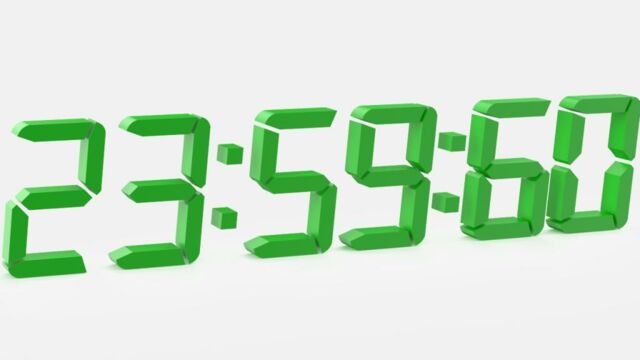The leap seconds are used to sync clocks approximately every twenty-one months with the rotations of the earth. It is a rare phenomenon that has had ‘devestating’ effects for precise technology that makes use of timestamps, The Verge reports.
Discover our latest podcast
Syncing the Coordinated Universal Time (UTC)
The leap seconds were first introduced in 1972, a period in which scientists were still mechanically adding the rare occurrence of leap seconds to clocks.
The leap seconds were introduced to sync and maintain the Coordinated Universal Time (UTC) with the rotations of the earth that periodically slow down.
Eliminating the leap second is seen a way of preserving adherence to Coordinated Universal Time -- the internationally standard time scale -- by making it a continuous time scale rather than one that is episodically interrupted https://t.co/Bh3klLnx7E
— NYT Science (@NYTScience) November 20, 2022
Governments and 'big tech' agree
According to the Independent, representatives of governments in tandem with scientistsvoted to abolish the leap seconds during the 27th General Conference on Weights and Measures (CGPM) in Paris on 18 November.
The vote passed almost unanimously and intends to end leap seconds before or by 2035 until at least 2135. It is also a call for scientists and technologists to develop a better way of keeping in sync the atomic and astronomical time scales, The Verge reports.
According to the Quantum Flagship,atomic clocks are the most precise clocks used to date, as they use atoms, more precisely the electronic transition from one state to another as their ‘pendulum’.
The verdict by the CGPM, comes almost a decade after many complaints emerged about the ‘devestating’ effects that the leap seconds were presenting to technologies that rely on precise time.
Down with the leap second! So say Meta, Google, Microsoft, and US and French standards bodies who thinks tweaking atomic clock time for the Earth's rotation causes more problems than it solves. Key government agencies agree. Tip @Techmemehttps://t.co/pFts5RX4SL
— Stephen Shankland (@stshank) July 25, 2022
In its verdict, the CGPM noted some of the biggest problems which have been persistent in the navigation systems and energy networks.
’Leap seconds create discontinuities that risk causing serious malfunctions in critical digital infrastructure, including the Global Navigation Satellite Systems (GNSSs), telecommunications, and energy transmission systems.’
Sources used:
-TheVerge: ‘Time’s up: the leap second is being scrapped’
-Quantum Flagship: ‘Atomic Clocks’
-Independent: ‘Leap second to be finally scrapped after decades of disruption’















